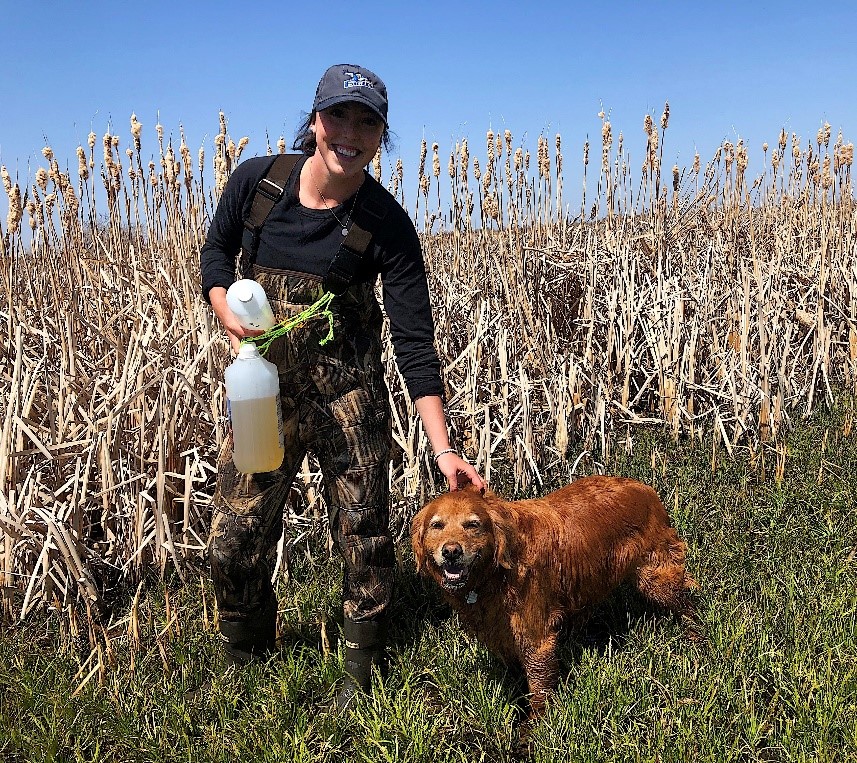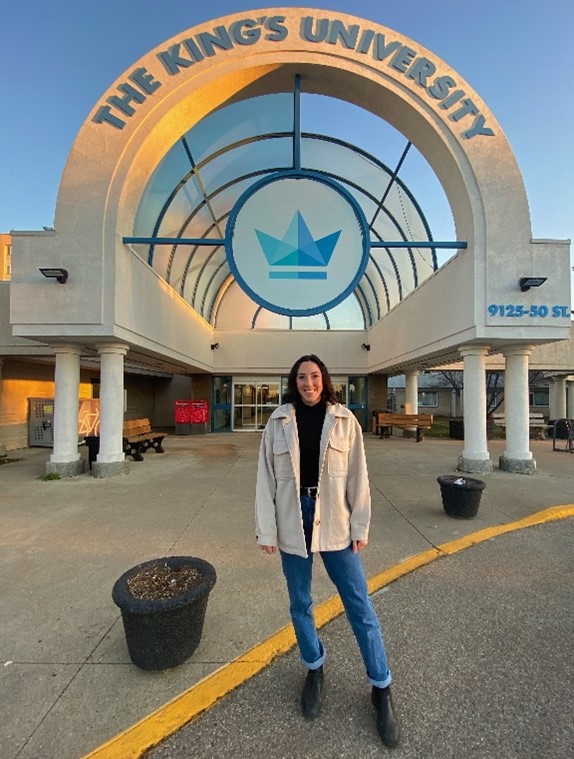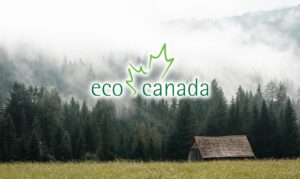Holding environmental post-secondary accreditation with ECO Canada showcases a program’s alignment to employment standards and industry demands and demonstrates a commitment to high-quality education. The King’s University’s Environmental Studies program is one such program that has been accredited with us since 2011.
The Environmental Studies program at The King’s University is designed to prepare students to address environmental sustainability issues through practical hands-on skills and experiences in addition to their course work. The program offers both a BA and BSc paired with a wide variety of concentrations, some of which include business administration, sociology, biology, and chemistry. In addition to providing an interdisciplinary grounding in sustainability principles and practices, the program also works hard to address both deep philosophical, theological, and personal questions.
Kristy Dupuis is currently in her final year of the Environmental Studies program at King’s University. She grew up on a rural Saskatchewan grain farm and developed an appreciation for the environment at an early age. Kristy had first started at King’s with a biology degree but had decided to switch to the Environmental Studies program in her 2nd year. After learning more about environmental issues in her introductory courses, she wanted a more active role in contributing to the solutions addressing those issues.


Kristy had been fortunate to grow as an environmentalist through this program. This was largely due to the professors and smaller class sizes. She felt that the professors cared about the students’ success and offered meaningful teaching approaches. The small classes also facilitated lively discussions with her classmates. She also gained a lot of hands-on experiences through her labs, such as going on trips to conduct fieldwork and visit different ecosystems.
In one of her courses, she is working on a group project where they are building an urban heat island map for Edmonton. Using satellite imagery from NASA and the GIS software, they will be identifying the hottest areas in the city. She chose to work on this topic because heatwaves are often detrimental to human health and the effects are exaggerated in cities due to the use of concrete and lack of vegetation. They will be presenting their findings to Shrubscriber, a tree planting company in Edmonton, to showcase which areas to focus their efforts on. Through this project, they will also be identifying neighbourhoods with the highest poverty levels to focus tree planting efforts on, as they often have fewer privately owned trees in those communities.
Early on in her degree, the program provided Kristy and her classmates’ support with resume and cover letter writing and preparing for interviews. This support was one of the reasons she was able to secure her internship with Ducks Unlimited over the summer as a conservation technician. Her internship focused on wetland restoration and monitoring to determine the success of previous restorations. Through this experience, she learned a lot about the ecological significance of wetlands and watersheds, and how important they are to ecosystem health.
After graduating, Kristy plans to do a master’s in conservation biology or restoration ecology. The Environmental Studies program at King’s offered a great foundation and now she is ready to refine and focus on the areas she is interested in most. Afterwards, she hopes to pursue a career where she can work to restore degraded landscapes or conserve ecologically significant areas.
Find out more about Environmental Post-Secondary Accreditation, and view our list of programs that are currently accredited with ECO Canada.



